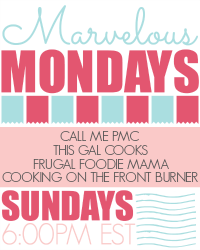I finally had lunch with my uncle, who also happens to be the last one I have. He has been struggling with cancer and its treatments for several years now. He happened to mention that his chemo treatments affect his brain. My cousin explained it as "chemo brain". He confesses to not being able to find the right words he wants to say or remember things.
According the MayoClinic, it can also be called 'chemo fog' and is a condition that affects cognitive impairment or dysfunction. They also state that it is not solely a side effect of chemotherapy.
Here are some of the symptoms the clinic mentions: short attention span, difficulty learning something new, difficulty multitasking, fatigue, confusion -- and the list goes on. There may be other causes for this: hormone treatments, fatigue, anemia, depression, medication, and other factors.
The clinic mentions risk factors that increase this memory issue with cancer survivors: •Brain cancer, •Chemotherapy given directly to the central nervous system, •Chemotherapy combined with whole-brain radiation, •Higher doses of chemotherapy or radiation, •Radiation therapy to the brain, •Younger age at time of cancer diagnosis and treatment. You can choose to discuss these issues with your doctor - if so keep a diary of when these memory lapses happen, what medication you are taking, and write down your questions when you think of them. Best to bring a person with you when you go to help you with the information.
Whether your doctor will prescribe anything or not, there are ways to train your brain. 1 - Repetitive exercises to train your brain. 2 - Tracking and understanding what influences memory problems. 3 - Learning coping strategies. 4 - Stress-relief techniques. Plus they suggest lifestyle and home remedies: •Control what you can about your working environment. *Prepare yourself for success. *Stay organized. *Clear your mind of distractions. *Take frequent breaks. *Exercise your Exercise your brain. *Exercise your body. There may be alternative medicines to take but always check with your doctor first. Lastly don't be afraid to talk to people about this problem. We all have memory issues from time to time. Get help from a support group. You don't have to go it alone.
Sharing information & services we use for our special needs child, Will, and our elderly parents. Exploring more services & inviting others to share their stories with us.
Saturday, August 30, 2014
Wednesday, August 6, 2014
Realizing the Men are Caregivers too.
(picture from Columbia magazine).
My in-laws have their other children and spouses, as well as Frank (and myself when asked), helping them with daily living needs and taking them to doctor appointments. Frank is also overseeing their finances. This seemed to stand out even more when I came across an article in the Knight of Columbus magazine, Columbia July 2014, titled 'Sandwich Generation'. Author Brian Caulfield writes that he shares the caregiving of his parents with 2 brothers. Being a dad and husband himself as well, he asks how much his efforts helps either family.
Many baby boomers find themselves in the same situation also juggling work demands. One big point he makes, is that this situation is a blessing, although many days it seems like a chore. A blessing when it comes to it being a good place for all involved -
* it keeps us away from all our electronics and mindless diversions we have;
* that we are needed can be a double edged sword: it may boost our self-image and confidence but it keeps us humble as we realize we cannot change the aging process;
* we face dignity of people as our parent struggle with possibly having to ask for help with toileting needs
* our mom still want to take care of others while not being able to take care of herself;
* at home, we see our families stepping in to make the most of us being away.
As Brian writes, "We are weighed down by the struggle and the work and the hope we pit against the stubborn fact of physical decline and death. But we are also saved from our natural presumption of good health. Watching our parents age and weaken keeps us close to our own mortality, and if we are wise, we stay mindful of the four last things: death, judgment, heaven and hell. I was privileged to be present when my dad received the sacrament of anointing and witnessed the real emotional, spiritual and even physical renewal that ensued. When I told my sons of this experience, they were sad that granddad almost died, but they were also drawn more deeply into the faith that reaches beyond the grave".
Caring.com has an article, "The Male Caregiver" by Dave Singleton. Dave writes that it is harder for men especially when it comes to being the caretaker of the parent of the opposite sex. His mom found it hard to get use to him helping with her personal needs but sees it as love helping with her needs and keeping her privacy and dignity as best can. His article also states that " A 2012 analysis by the Pew Research Center's Internet and American Life Project found that men represent 45 percent of all family caregivers. And the Alzheimer's Association reported that between 1996 and 2011, the percentage of men caring for a family member with Alzheimer's disease or other dementia more than doubled, from 19 to 40 percent".
The article cites several reasons for the change: more women are in the workforce so men have to step in, many families have children living out-of-state so if there is a male child close by he becomes the caregiver, more employers are letting their male employees take time off to stay home. Not to overlook is the fact that men have the same health issues to deal with as women, so they need to remember to take care of themselves such as high blood pressure/hypertension, arthritis, and high cholesterol. These are the three most widely experienced physical maladies, while nearly a quarter of respondents suffer from depression. Not to forget financial burdens; Caring.com shows that in the past year 40% of male caregivers spent over $5000.00 on caregiving expenses.
Caring.com goes on to offer 3 tips for the men:
*Educate yourself. Learn as much as you can about the care recipient's diseases and/or disabilities. "Talk to the doctor, a social worker, or a geriatric care manager," says Trina Sauceda, one of the founders of The Let's Group, a website focused on aging and caregiving. "Ask questions of healthcare workers. Discuss issues and find out what works for the care recipient and you. Inquire about outside services that can provide assistance or support."
Share your experiences and get support. Typically, men don't talk about caregiving stress, but not sharing what's really going on is a stress unto itself. "Acknowledge your emotions, because you are not a robot, you are a human being," says Harrison. "Be honest with yourself. You can't do it all. Know that stress, anger, and frustration are common feelings among caregivers. Take care of your health, too." Caregiving is a lonely job for all, but especially so when you look around and don't see members of your tribe. Explore the growing number of support groups for male caregivers.
Lead with and value your strengths. Everyone brings their own abilities to the fore with caregiving and, while skills may be different, they are equally important. If managing finances and creating schedules for doctor appointments and medications comes more easily to you, focus on those and get help, if you can, for other, more daunting aspects of caregiving. "Just because a man is managing Mom's finances instead of giving her a bath doesn't mean he isn't caregiving," says Tucker. "Men have always been nurturers, but not always in the same ways as women. If you're always looking for solutions, then use your typical 'fixer' predisposition to its full advantage and find solutions with professionals."
My in-laws have their other children and spouses, as well as Frank (and myself when asked), helping them with daily living needs and taking them to doctor appointments. Frank is also overseeing their finances. This seemed to stand out even more when I came across an article in the Knight of Columbus magazine, Columbia July 2014, titled 'Sandwich Generation'. Author Brian Caulfield writes that he shares the caregiving of his parents with 2 brothers. Being a dad and husband himself as well, he asks how much his efforts helps either family.
Many baby boomers find themselves in the same situation also juggling work demands. One big point he makes, is that this situation is a blessing, although many days it seems like a chore. A blessing when it comes to it being a good place for all involved -
* it keeps us away from all our electronics and mindless diversions we have;
* that we are needed can be a double edged sword: it may boost our self-image and confidence but it keeps us humble as we realize we cannot change the aging process;
* we face dignity of people as our parent struggle with possibly having to ask for help with toileting needs
* our mom still want to take care of others while not being able to take care of herself;
* at home, we see our families stepping in to make the most of us being away.
As Brian writes, "We are weighed down by the struggle and the work and the hope we pit against the stubborn fact of physical decline and death. But we are also saved from our natural presumption of good health. Watching our parents age and weaken keeps us close to our own mortality, and if we are wise, we stay mindful of the four last things: death, judgment, heaven and hell. I was privileged to be present when my dad received the sacrament of anointing and witnessed the real emotional, spiritual and even physical renewal that ensued. When I told my sons of this experience, they were sad that granddad almost died, but they were also drawn more deeply into the faith that reaches beyond the grave".
Caring.com has an article, "The Male Caregiver" by Dave Singleton. Dave writes that it is harder for men especially when it comes to being the caretaker of the parent of the opposite sex. His mom found it hard to get use to him helping with her personal needs but sees it as love helping with her needs and keeping her privacy and dignity as best can. His article also states that " A 2012 analysis by the Pew Research Center's Internet and American Life Project found that men represent 45 percent of all family caregivers. And the Alzheimer's Association reported that between 1996 and 2011, the percentage of men caring for a family member with Alzheimer's disease or other dementia more than doubled, from 19 to 40 percent".
The article cites several reasons for the change: more women are in the workforce so men have to step in, many families have children living out-of-state so if there is a male child close by he becomes the caregiver, more employers are letting their male employees take time off to stay home. Not to overlook is the fact that men have the same health issues to deal with as women, so they need to remember to take care of themselves such as high blood pressure/hypertension, arthritis, and high cholesterol. These are the three most widely experienced physical maladies, while nearly a quarter of respondents suffer from depression. Not to forget financial burdens; Caring.com shows that in the past year 40% of male caregivers spent over $5000.00 on caregiving expenses.
Caring.com goes on to offer 3 tips for the men:
*Educate yourself. Learn as much as you can about the care recipient's diseases and/or disabilities. "Talk to the doctor, a social worker, or a geriatric care manager," says Trina Sauceda, one of the founders of The Let's Group, a website focused on aging and caregiving. "Ask questions of healthcare workers. Discuss issues and find out what works for the care recipient and you. Inquire about outside services that can provide assistance or support."
Share your experiences and get support. Typically, men don't talk about caregiving stress, but not sharing what's really going on is a stress unto itself. "Acknowledge your emotions, because you are not a robot, you are a human being," says Harrison. "Be honest with yourself. You can't do it all. Know that stress, anger, and frustration are common feelings among caregivers. Take care of your health, too." Caregiving is a lonely job for all, but especially so when you look around and don't see members of your tribe. Explore the growing number of support groups for male caregivers.
Lead with and value your strengths. Everyone brings their own abilities to the fore with caregiving and, while skills may be different, they are equally important. If managing finances and creating schedules for doctor appointments and medications comes more easily to you, focus on those and get help, if you can, for other, more daunting aspects of caregiving. "Just because a man is managing Mom's finances instead of giving her a bath doesn't mean he isn't caregiving," says Tucker. "Men have always been nurturers, but not always in the same ways as women. If you're always looking for solutions, then use your typical 'fixer' predisposition to its full advantage and find solutions with professionals."
Sunday, August 3, 2014
More interventions and issues to address when dealing with Alzheimer's.
I received my latest copy of 'Healthy Living' from Sams Club. There was an informative article titled "Answering the Challenge of Alzheimer's Disease" by Michele Mongillo. There is so much information out there that it sometimes gets confusing, overwhelming, overloading. This particular article struck me as being informative because it hit upon a few things that I don't remember seeing in other places.
As stated in other articles, we are reminded that Alzheimer's shows itself in behavioral difficulties as well as in medical conditions. Some of the behaviors may be repetitive motions, outbursts, physical aggression and it is best to remember that these actions are not intentional. Also coming into play with this behavior is pain, poor sleep, hunger, thirst, feeling lost or not belonging. Michelle lists a few key interventions for caregivers:
•Always stay calm, talk softly and slowly.
•Attempt to turn repetitive motions into an activity. If the loved one is repeatedly folding a napkin, provide a small basket of washcloths or clothing items to fold.
•Try to determine if the person is having some type of pain. They may not be able to communicate this to the caregiver.
•Avoid overcrowded situations, increased activity and even multiple people in the home, as they can be overwhelming and confusing for a person with dementia.
•Don’t argue with the loved one; rather, try to validate their feelings and get them engaged in some type of activity.
•Simplify daily tasks. If the person is calmer in the morning, then schedule appointments/errands during those hours.
See the rest of the story on "care 4 elderly parents".
Subscribe to:
Comments (Atom)
Popular Posts
-
I found this list that someone sent me about a year ago (so I don't know what still is included or if any percentages have changed) but ...
-
Your Mother carried you inside of her womb for nine whole months, she felt sick for months with nausea, then she watched her feet swell and ...
-
I was sitting in the doctor's office with my youngest, checking to make sure he just had a stomach bug/virus, when I saw this article in...
-
(picture from Yahoo News ) A hospital in New York has started training retirees to help support caregivers whose family member is hospitali...
-
(picture froma Place for Mom website) With summer coming fast and schools closing for a break, families are thinking about vacations. Many...
-
My wife Linda started this blog last month and I want to let her know how proud I am of her, that she is sticking with it. She does ask me t...
-
I received a letter from our healthcare provider offering a special service through Social Security. We are in the process of filing for SSI...
-
Role reversal - parenting the parent, an emotional time for both the adult child and the parent says " A Place for Mom ". Parents...
-
Now that the fun and happiness of the holidays are over, more and more advertisers are coming forward to remind us of our favorite Uncle Sam...
-
This note came from a good friend of mine when she found out my mom and aunt passed away last year. She mentioned how it helped her that fir...
4 Signs of Caregiving Stress Overload
ElderCarelink email posts 4 signs that should not be overlooked by you, the caregiver, or a close family member or friend. They report that even though the immediate caregiver may not be helping in direct care, the mind is never far from the needs of the older person, thinking about meals, falling, medications. Take the opinion of a family member or friend if they are telling you that you are stressed. Four signs: you skip your own physicals; you isolate yourself from others; you eat and/or drink too much for good health; you are short tempered with the elder, your spouse or your children. If any or all of these sound familiar, take a break no matter how short in order to recharge. For more information on caregiver stress see ElderCarelink
Ranting
You can check out my ranting and stream of consciousness writing about looking at adult service providers with Will.
A Caregiver's Poem
I was looking through a 'Caregiver's Blog: Senior Care Support' and came across a poem that was shared by a writer, Dana, from the blog. The poem was written by Becky Netherland and Dana's grandmother shared it with her. I thought it was great and there is not much to say about it - just read!!! Enjoy!!
(picture from Caregivers Blog)
I’ve traveled paths you’ve yet to walk
Learned lessons old and new
And now this wisdom of my life
I’m blessed to share with you
Let kindness spread like sunshine
Embrace those who are sad
Respect their dignity, give them joy
And leave them feeling glad
Forgive those who might hurt you
And though you have your pride
Listen closely to their viewpoint
Try to see the other side
Walk softly when you’re angry
Try not to take offense
Invoke your sense of humor
Laughter’s power is immense!
Express what you are feeling
Your beliefs you should uphold
Don’t shy away from what is right
Be courageous and be bold
Keep hope right in your pocket
It will guide you day by day
Take it out when it is needed
When it’s near, you’ll find a way
Remember friends and family
Of which you are a precious part
Love deeply and love truly
Give freely from your heart
The world is far from perfect
There’s conflict and there’s strife
But you still can make a difference
By how you live your life
And so I’m very blessed to know
The wonders you will do
Because you are my granddaughter
And I believe in you.
Post Pictures
All pictures, unless otherwise identified, are from 'Clipart'.
4 Seasons Blog Hop
 ">
">
Labels
A Place for Mom
(3)
adaptive equipment
(1)
adopted
(1)
adult services
(2)
Alzheimer's
(14)
apps
(1)
assisted living
(3)
autism
(4)
babies
(1)
cancer
(1)
Caregiver
(13)
caregivers
(13)
caregiving
(5)
CareNovate
(2)
caring for parents
(1)
Caring.com
(6)
chemo
(1)
CT
(1)
death
(1)
deformity
(1)
dementia.
(5)
disability
(5)
disabled
(5)
down syndrome
(1)
Downs Designs
(1)
early intervention
(2)
elder abuse
(1)
ElderCarelink
(3)
elderly
(18)
elderly parents
(24)
falls
(1)
health care
(2)
incontinence
(2)
iPad
(4)
Mayo Clinic
(1)
Medicaid
(8)
medical
(2)
medical information
(1)
Medicare
(8)
memory
(6)
Memory and Aging
(1)
mom
(1)
mother
(1)
MRI
(1)
nursing home
(3)
parent
(1)
Parkinsons
(4)
PCA
(1)
PET
(1)
presecriptions
(2)
respite
(1)
seniors
(2)
SIS
(1)
social media
(1)
special education
(3)
special needs
(13)
SSDI
(1)
SSI
(6)
therapy
(1)
Transition
(6)
VA
(1)
veteran
(1)
VNA
(1)
Will
(4)























